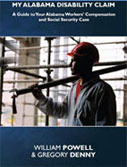Before the advent of workers’ compensation laws in the 1900s, this zoo employee would have been left on her own to deal with her injuries as working with a Tiger would most likely be considered an assumption of the risk and a legal defense to any legal action on her part.
The law concerning compensation for injuries to a body part is a long one. From ancient times to the present, a system of compensation has been set forth creating a means for injured parties to be compensated if they were injured due to the fault of another, but a line of defenses were also created-defenses such as contributory negligence and assumption of the risk. These defenses prevented most of those maimed or killed in the line of their employment from any form of recovery. For example, if a worker worked with explosives, they were often prevented from suing their employer if a piece of dynamite prematurely exploded and seriously injured them because their job inherently involved a high degree of risk which they voluntarily assumed. If a worker miss-stepped and slipped and fell off a ladder, then they were partially at fault and therefore unable to seek any form of compensation for their injury and time off work due to being contributorily negligent. Another example would be a worker who steps into a hole at a job site and falls, injuring their knee. Since the employer was not at fault and did not cause said injury, the injured worker had no means of recovery and rarely had the finances to pay for the required surgery and rehab.
So, we see that the majority of workers injured while performing their job duties and helping their employer make huge profits received nothing if they suffered a serious job related injury besides a pink slip. This inequity is what led to the various states creating workers’ compensation laws.
Alabama was one of the last States to adopt a workers’ compensation statute. In a nut-shell, Alabama’s Workers’ Compensation Statute gets rid of liability based on fault in job related injuries and instead approaches the injury in a no-fault manner. Now, instead of an injured worker having to prove that his employer was negligent in some duty owed him (and showing that they were totally blame free), all a worker has to show is that (i) he/she suffered a work related injury (ii) while performing their job duties and (iii) that timely notice of said injury was provided to their employer. In Alabama, if a worker can show this, then their employer must pay for (a) all of the workers’ reasonably necessary medical treatment, (b) reimburse the worker for mileage in driving back and forth for medical treatment or to receive medications; (c) pay the worker 2/3rds of their average weekly wage when off work pursuant to the advice of a physician treating them for their job injuries (until the date they reach maximum medical improvement) and (d) pay compensation to the injured worker for any permanent physical impairment sustained as a result of an on-the-job injury.
In exchange for forcing the employer to bear the financial burden when an employee is injured at the job site, the injured worker gives up certain rights and benefits-including the right to compensation for pain and suffering.
So, while a worker in Alabama who suffers a job related injury is limited by law in what they can receive in a workers’ compensation claim, what they are now legally entitled to is on the whole much better than what was available prior to our workers’ compensation laws.
If you have suffered a work related injury and have questions about Alabama Workers’ Compensation benefits, call the experienced Alabama Workers Compensation attorney-call Powell and Denny today.
Powell and Denny: We Work When You Can’t
Offices in Birmingham, Alabama and Huntsville, AL
Powell and Denny have been selected as one of the Best Law Firms in America by U.S. News and World Report for each of the last 5 years.



